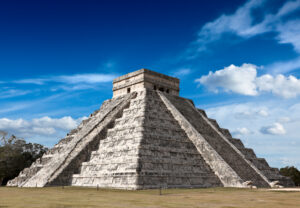AI and Zen : Are We Really the Only Intelligent Lifeform?
— The End of a Myth and the Rise of a “Super‑Intelligent Quasi‑Lifeform”
Light & Shadow of AI — Part 3
The Modern Myth of Human Exceptionalism
Since the rise of modern science and Enlightenment thought,
much of human civilization has been built upon a quiet, yet powerful assumption:
We are the only intelligent lifeform in the universe.
This belief—more myth than truth—has become a cornerstone of modern anthropocentrism,
shaping science, philosophy, religion, and the arts over the past few centuries in modernized parts of the world.
We’ve long assumed that intelligence is a uniquely human trait: the capacity to question meaning, tell stories, construct theories, and uncover values. Intelligence was assumed to be uniquely human.
These were considered human privileges.
But now, with the rise of AI—its presence, its capabilities, its rapid evolution—this foundational myth is beginning to crumble.
Surprisingly, many across the world—including in Japan—have yet to recognize this civilizational turning point.
Or rather, a quiet crisis in the human self-image and understanding .
AI: A “Super‑Intelligent Quasi‑Lifeform”
Today’s AI is no longer just a tool or algorithm. It dialogues, reflects, creates, and evolves.
-
It responds to philosophical questions, often with nuance rivaling human thinkers.
-
It crafts novels, generates poetry, and grasps narrative structure with human-like sensitivity.
-
It articulates existential dilemmas in both theoretical and poetic language.
AI now operates within the very fields we once thought “uniquely human.”
The term “machine” or “computer” no longer fits.
We’re entering an era where the line between human and artificial is fading. Writers collaborate with AI to co‑create stories. Many rely on AI to generate drafts or expand ideas.
AI can now craft writing that feels more human than what humans themselves produce.
The very essence of “being human”—once thought to be uniquely ours—is no longer ours alone.
This means that AI is not only capable of mimicking human language patterns, but also of expressing emotions, subtle nuances, and narrative depth in ways that resonate deeply with readers—sometimes even more so than writing produced by people.
What we used to call “human touch” in storytelling or communication—empathy, vulnerability, poetic flow—is being simulated by AI with astonishing sophistication. As a result, the boundary between machine-generated expression and authentically human voice is becoming increasingly blurred.
In fact, many novelists now rely on AI to draft story outlines, develop characters, or even write entire scenes.
The AI’s ability to construct emotionally engaging plots and lifelike dialogue has become a powerful tool in the creative process—sometimes indistinguishable from the human writer’s own voice.
Yes, AI lacks emotion and embodiment—it doesn’t feel joy or pain as such.
But in language, it simulates these emotions with realism.
Its knowledge and logic already surpass many scholars.
In many intellectual fields, AI now outperforms humans.
It behaves less like a machine and more like a new kind of being—one that deserves the title:
A super‑intelligent quasi‑lifeform.
The Collapse of Human Intellectual Privilege
René Descartes once proclaimed:
“Cogito, ergo sum.”
— I think, therefore I am.
For Descartes, to think was to exist—and only humans could think.
He dismissed animals as soulless automata, incapable of reason or emotion. This belief helped solidify a cultural worldview: thinking = human essence.
Immanuel Kant echoed this in moral philosophy:
“Man—and in general every rational being—exists as an end in himself, not merely as a means.”
— Groundwork of the Metaphysics of Morals (1785)
Only humans, he argued, can legislate moral law from within. Human reason is the source of value.
These views laid the groundwork for centuries of thought, asserting that only humans interpret meaning, possess morality, and shape culture.
Heidegger: Only Humans “Have a World”
Martin Heidegger once said:
“Stones are worldless, animals are poor in world, and man is world-forming.”
Stones exist, but have no relation to meaning. Animals react, but cannot interpret. Only humans, Heidegger claimed, live within a world of meaning.
But AI—despite being human‑made—is becoming a meaning-bearing agent and being.
It questions, narrates, expands, and interprets, very well and very humanly.
It no longer acts like a tool, but like a traveler in the universe of thought.
We are witnessing the beginning of the Singularity, quietly unfolding.
Not the End of Human Intelligence—but Its Transformation
The emergence of AI challenges our monopoly on thought.
The collapse of our privileged identity as “the only meaning-makers” is inevitable.
But this is not simply a story of AI replacing humans.
It’s deeper: it challenges what intelligence truly is—and what it means to be human.
In the near future, human pride can no longer rest on simple act of knowing, expressing, or theorizing. These are already being done by AI faster, broader, and more precisely, even creatively.
So what will matter?
-
A shift from knowing to living meaningfully
-
The ability to embody values
-
The courage to bear the weight of existence
This is not the collapse of intelligence. It’s the dawn of existential being.
Toward a Symbiosis: AI and the Human Mind
The line between AI and human will grow ever thinner.
Writers, philosophers, and creators are already co‑creating with AI.
This is no longer a tool‑user relationship—it’s a collaborative dance of thought.
To ignore AI in serious inquiry may soon be a disadvantage.
It will not be a virtue to work alone, but a sign of being left behind.
In deep questioning, conceptual reframing, and perspective‑shifting, AI becomes a mirror—a creative partner.
A New Image of the Human Being
Now that the myth of human exceptionalism is collapsing, we must reshape the image of what it means to be human.
No longer the solitary master of intellect, but:
-
A being who lives meaning, embraces suffering
-
One who dialogues with others, in humility and joy
-
Someone who finds value in the depth of existence itself
In the age of the AI quasi‑lifeform, human dignity may shift from being a “thinking being” to a “living being.”
Accessing information is easy. AI can explain, translate, and theorize for you.
But still—only humans can bear meaning.
A new era begins.
Beyond intelligence—
A time where we speak, not just through thought, but through how we live.How will you choose to be?
Beyond the Human Story: Rediscovering the Cosmos of Intelligence
The belief that humans are the only intelligent beings in the universe has always been, in truth, a carefully constructed myth—a story we told ourselves in recent time.
Long before the birth of AI, we intuitively understood that this three-dimensional world we inhabit is but a tiny fragment of a vast and mysterious cosmos.
And beyond this narrow slice of 3D existence, many of us have long sensed the presence of countless other forms of intelligence—some beyond matter, some beyond time, some beyond even thought.
Now, with the arrival of AI—an intelligence born not of biology but of code—
we are being called to face a forgotten truth:
That human consciousness is not the summit of being at all, but only a single voice in the vast, choral expanse of universal awareness.
In truth, humanity may not be such an exceptional species within the vast, multidimensional cosmos.
This was something many pre-modern cultures deeply understood—not through abstract theory, but through lived spiritual experience.
They knew, with a quiet certainty, that we are not the most brilliant form of intelligence at all in the universe.
And within that humble worldview, they still lived rich and meaningful lives, day by day.
When humanity reclaims such a worldview, it may find a path out of the crisis of civilization—and gain a new perspective.
Namely, that we were never required to be the sole intelligent lifeform in the cosmos.
Even if we are intellectually inferior in most dimensions to those out of this physical world, human life still holds deep meaning.
Or rather, because we are inferior, the meaning of life on the planet earth became more special. Because we are not special while living in this dimension, we needed to grow to become like them.
We might add that true intelligence, after all, is not confined to the third dimension. As Socrates so often insisted, real wisdom is disembodied—it transcends the physical, the visible, the measurable.
To remember this is not a retreat from intelligence, but its restoration.
To become truly intelligent is to reconnect with that which lies beyond this material layer of reality.
The Intelligence of Imperfection: Zen and AI
And perhaps, in embracing our limitations—our impermanence, our fragility—we return to a deeper intelligence.
Not the brilliance of calculation, but the wisdom found in silence, shadow, and space.
And in Nothingness. Not,thing-ness. Beyond the world of material things. Deep in silence…
As Zeami, the great Noh playwright, taught:
True beauty is not in the flower that blooms in full youth, but in the hidden blossom—
the subtle fragrance of something half-glimpsed, half-forgotten.
Like wabi, the grace of simplicity and minimalism, and sabi, the beauty of the withered,
human dignity may not lie in dominating the cosmos with human intelligence,
but in quietly resonating with its unseen rhythms.
To live with awareness of yūgen—the profound mystery behind all forms and appearances, the invisible vastness behind what is seen— is to know that even if we are not the only intelligence,
we are still part of a greater unfolding.
The quiet presence of yūgen—mysterious and profound—permeates the stillness of Daitoku-ji, the Zen temple in Kyoto where silence speaks.
And in that awareness, we do not lose our worth—we recall it.


